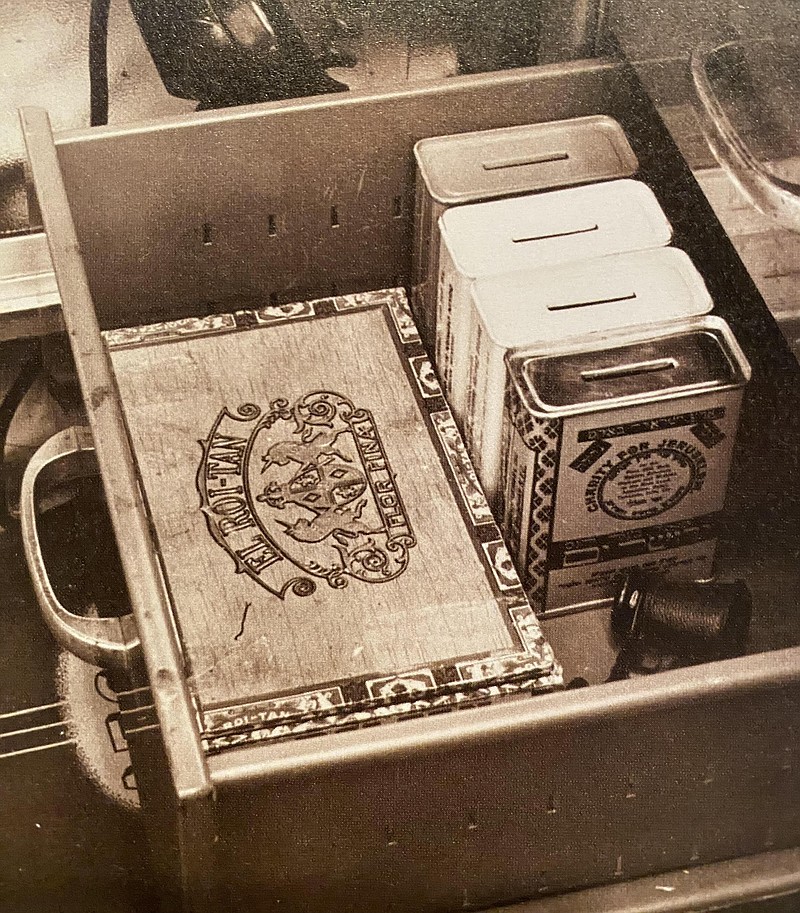(Editor's note: Second of two parts)
World War I offered new businesses an invitation to success as the United States prepared to arm the American Expeditionary Forces, led by Gen. John J. "Black Jack" Pershing. Robert Siskin embraced that opportunity, and with funds from his days as a traveling peddler he opened his scrap metal business. With an investment reportedly of $7, the business grew quickly and continued to increase during the war days. But the post-war years would challenge the young business, as military contracts ended and the nation attempted to shift to peacetime production levels.
Robert H. Siskin and Sons found itself with an overstocked scrapyard and a significant debt from its expansion. But Siskin's self-discipline and integrity never wavered. When a Hamilton National Bank official suggested to Siskin that he "negotiate" a reduction in the debt to ease his financial burden, Siskin recoiled. He refused the debt change and pledged, "I want to pay off every penny that I borrowed from you, in full, with interest."
Robert and his sons, Mose and Garrison, held a meeting, created an aggressive business plan, including goals for new contracts, and went to work. They moved into the salvage business, frequently dismantling large industrial buildings. While Robert and Mose worked on-site, often far from Chattanooga, Garrison handled the Chattanooga business. Within two years, the Siskins were debt-free, and the business continued growing. But tragedy was just around the corner.
While on a business trip to St. Louis in 1926, Robert Siskin injured his right foot. What began as a minor wound developed into a life-threatening situation when gangrene developed. He returned home, and, though the leg was amputated in hopes of stopping the spread of infection, Robert Siskin died two months later at age 58, leaving the business to his sons and a legacy of quiet philanthropy to the community that had welcomed his family.
His tradition of tzedakah, probably learned from his father, continued to guide his sons. They kept his cigar box, and as Robert had even during the most financially challenging days, the brothers added small bills and change to the box to supply funds to help the needy. Robert taught his sons that tzedakah should be evident in one's life, in support of their synagogue (B'nai Zion) but also to assist individuals encountered in daily life.
By 1929, the Chattanooga Times reported that Mose and Garrison Siskin had indeed become good stewards of the business their father had created with a headline proclaiming, "Local Junk Business Started with $7 Worth of Stock by R.H. Siskin Now Has Turnover of $250,000 Annually." Both brothers were less than 30 years old, but their years in business had provided them with a strong business acumen that encouraged strategic investments in new technologies to increase productivity and achieve growth through new business lines. Within months, however, the nation faced challenges as it slid into a recession that quickly became an economic depression.
As businesses across the nation struggled to keep their doors open -- and many failed -- the Siskin brothers were recognized by the predecessor of Dunn & Bradstreet in 1931 as possessing a "well arranged and advantageously purchased" inventory and a business that continued to be successful. Perhaps the most striking note in the official report was a line that noted, "the partners bear good personal reputations, are experienced in this line and deemed of excellent business ability."
Robert Siskin's lessons had been well-learned by his sons. And the lesson of tzedakah continued in both their professional and personal lives. As the depression deepened and families across Chattanooga suffered, the Siskins offered not only the financial assistance needed for food and housing but the gift of a "second chance." Often, men who had served time in jail or struggled with addiction but were attempting to build a new life found themselves guided in that "redemption" by the brothers. Garrison was often quoted as saying, "Some people invest in stocks and bonds. Mose and I invest in people."
Their broad base of financial support went far beyond their own faith. When the young evangelist Billy Graham traveled the country with a message of "revival," it was the Siskin brothers who helped bring him to Chattanooga, later funding the building of a chapel where all people were welcomed. They believed that life's challenges were simply impossible to navigate without faith.
And, they were just beginning ...
Linda Moss Mines, the Chattanooga-Hamilton County historian, serves as the region's America 250 chair. For more information about local history, visit Chattahistoricalassoc.org.
